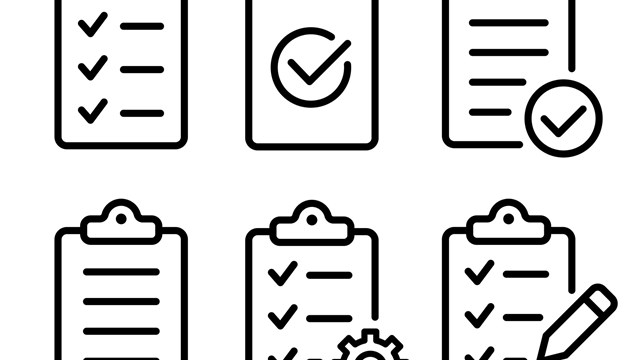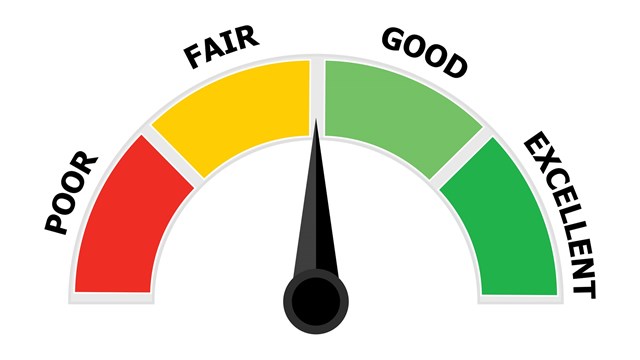
In today’s harsh economic times, maintaining a healthy reserve fund is more important than ever. A co-op or condo’s reserve fund can be used to cover any number of emergency expenses from sudden repairs to legal costs. In addition, a reserve fund can be used for ongoing maintenance projects or for anticipated future repairs.
How Much is Enough?
Though a robust reserve fund is a necessity, there is too much variation in co-op and condo buildings to have one specific formula to calculate how much money should be in a building’s reserves—at least not one that works across the board. That said, there are some rules of thumb and guidelines that boards can use to determine a healthy amount to keep in reserve.
One way to get a sense of what your co-op or condo should have in reserve is to look ahead at the building’s needs. Conduct a reserve study or a survey to determine what systems might need to be replaced and what repairs might be necessary over the next five years.
“Boards should do a study—formal or informal—of all the systems in their building,” says Michael Esposito, an audit partner with Kleiman & Weinshank, LLP, an accounting firm based in Manhattan. “A board, super or engineer can do this to get a sense of what needs to be replaced in a five-year period, and what that cost will be,”
“The only way you could really calculate requirements are to conduct an engineering study,” says Gary Kokalari, a former president and treasurer of his own co-op and a specialist in co-op finance with Merrill Lynch in Manhattan. “A qualified consulting engineer should look at building’s useful systems and make a determination of what funds would be needed going forward.”
Indeed, says Kokalari, the figure you arrive at after assessing all the projects and upgrades you need, plus the ones your board would like to do might be so large as to be unrealistic, or pose a major burden to residents. At this point, the board should determine a way to either raise the necessary funds, or reassess to determine a reserve amount that is both healthy and realistic.
“Once you’re comfortable with major capital improvements or major repairs, you have to come up with a plan to fund them,” says Norman Prisand, CPA, who is with the firm of Zeidman, Lackowitz, Prisand & Co., LLP, in Plainview. “That determines the extent of your reserves. If the [reserve study] comes up clean, it’s one thing—but if it calls for half a million dollars in the next few years, it’s a different picture. Then you have to go about figuring out how to raise it.”
If your board finds that the amount needed for your reserve is prohibitively large, all is not lost, says Prisand. You merely need to sit back down, take a hard look at the numbers, and reprioritize your needs, wants, and expectations, paring down the list until you have something more feasible.
While looking ahead five years is a good rule of thumb, such a study should be reevaluated on an annual basis. A yearly review will ensure that the board has a clear picture of the most current state of the building and its operating systems.
Investing Reserves
In today’s economy, investing with caution is the key for just about everyone. The same goes for reserve funds—although they need to grow, they represent the investments of individual building residents, and should be treated as such.
“The reserve fund is other people’s money,” Prisand says. “There are three main considerations in [managing it]: safety, timing and liquidity. To be safe, the reserve should be insured. And that restricts you to bank accounts, to insured money markets and treasury securities. Yes, you will earn lower returns but it has to be safe. It also has to be liquid so if you go to sell it you’ll get something back. In timing, investments should coincide with your five-year construction plan, so when you need the money it will be available. You have to be prudent and conservative. You don’t want to be in a situation at the annual meeting where you have to say that your investments are way down or that the building has money but can’t touch it.”
Protecting the principal is critical, so while a quick return might sound good, make sure your investment strategy is insured, even if you’re earning less than you might be with another vehicle.
“You want to have a return while effectively protecting your principal,” says Esposito. “You don’t want that to waver. In a volatile market, you don’t want to risk any principal.”
Esposito notes that money market, treasury, and CDs are common investment vehicles. “That’s what you basically see—usually short term treasury bills or sometimes five-year bonds,” he says. “But if you need cash and have to liquidate the bond, there could be a loss of principal as a result.”
Staggering bonds so they mature at different times is one way to avoid having a large chunk of your reserve fund tied up and inaccessible. “You can buy four bonds that mature every three months and have some money that comes due,” says Kokalari. “The longer the investment, the less liquidity there is.”
Most reserve fund consultants feel that some investments—such as stocks—are much too risky for a reserve fund, and can result in the loss of principal.
“To invest for growth implies risk, and traditionally, investing for growth implies investing in things like stocks,” says Kokalari. “I don’t recommend that. You shouldn’t do that with a reserve fund because most are inadequate to meet with a building’s long-term capital expenditures based on an engineering study, and one never knows when an emergency can arise.” A safer bet, says Kokalari, are insured investments with direct or indirect government guarantees.
“It’s important to know what you’re investing in, what’s protected by FDIC and SIPC, and not concentrating money in any place that exceeds FDIC or SIPC limits,” agrees Esposito. The Securities Investor Protection Corporation (SIPC) is a governmental entity that provides customer protection should a brokerage-securities firm become insolvent.
Other Options
In addition to more traditional methods of investment, some co-ops and condos are raising money through other means like a flip tax or a transfer fee.
“More and more buildings are instituting transfer fees, and dedicating that to the reserve fund,” says Prisand. “Some condos are instituting a contribution each time someone buys a unit and moves in. Usually this is two months of common charges that are contributed into reserve fund. Condos can have a transfer fee but it is much harder to enact. What we’re urging buildings to do is to get contributions when somebody new moves in.”
Shareholder assessment is another way to increase reserves, but in tough economic times, many shareholders might be hard pressed to pay.
“Assessment can really become an issue in a time when people are concerned with their income and their jobs,” says Kokalari.
Checks and Balances
Reserve funds are usually handled or overseen by a building’s board, or a select few board members. In some instances, the management company also is involved in overseeing the reserve. No matter who is in charge, however, it’s extremely important that there be checks and balances in place to ensure transparency and to be reassured that the board is always well aware of the status of the building’s reserve fund.
“In most cases, the board of directors or managers oversees the investments. Sometimes it’s the management company. The checks and balances come in where copies of the monthly statements go to multiple parties: the board, management company and the auditor (CPA),” says Prisand. “The board, in conjunction with the management company, should be making decisions and the CPA should be getting copies of everything.”
Receiving financial statements alone isn’t enough—understanding them is essential. “Boards and shareholders should be aware that most audited financial statements should include footnotes or references that discuss the issue of whether or not the building’s investments are insured,” says Kokalari. “This is typically included in a footnote that refers to the concentration of credit risk. It discusses what investments the co-op or condo has and whether or not they’re insured.”
Today, most financial institutions offer online access to financial statements, and a designated board member should be reviewing this on at least a monthly basis, says Kokalari.
When money is needed, the board should request that money be put into an operating account and cut the check from there instead of directly out of the reserve fund. “You want to have checks and balances between parties. Every check should be funneled through an operating account through the agent and whoever is maintaining the reserve fund on the board,” says Esposito.
Current Economics
As buildings continue to be conservative with their reserve funds, many boards have placed an emphasis on saving overall vs. spending.
“It seems some buildings are being more conservative with expenditures. Just like individual investors, some are starting to become more savers than spenders,” says Kokalari, noting that low-risk investments give boards little reason to worry or panic. “If their reserves are in low-risk investments that are adequately insured, there’s no need to panic,” he says. “This does present a good opportunity to review reserve funds to understand what’s under the hood, however.”
Boards don’t have to go it alone when handling their reserve fund. Consult your professionals for help or advice when investing or structuring your reserve fund plan.
“You can consult with your attorney, accountant, property managing agent, organizations or trade groups,” says Esposito.
Professional organizations, such as the Council of New York Cooperatives & Condominiums (CNYC) and the Federation of New York Housing Cooperatives & Condominiums (FNYHC), provide a wealth of information for board members who want to become more knowledgeable. “The council holds an annual seminar in November at Baruch College,” says Prisand. “There are also seminars through CNYC on how to be a building treasurer and how to accumulate and invest reserves.”
The Cooperator also holds an annual expo and a schedule of seminars to help board members and property managers in the difficult task of successfully running and managing a co-op or condo building. The Cooperator’s next expo will take place April 27, 2010 at the Hilton New York.
Education and knowledgeable investing are crucial, as the reserve fund benefits the entire co-op or condo. “Some people are handling significant money with little financial background,” says Esposito, “so understanding is key. Boards have to understand clearly what they’re investing in. Don’t be sold a bill of goods that’s not there.”
“You’re in a fiduciary capacity, you have to be risk averse when you’re handling other people’s money and you have to be able to separate yourself. Don’t think of it in terms of a portfolio,” Esposito continues. “Education and speaking with knowledgeable professionals will go a long way in helping your board to make financial decisions in the best interest of your co-op or condo.”
Stephanie Mannino is a freelance writer and a frequent contributor to The Cooperator.









Leave a Comment